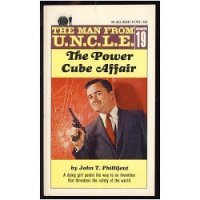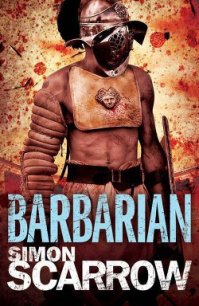Power of the Sword - Smith Wilbur (читать книги онлайн регистрации .TXT) 📗
With the band leading them, they turned into Adderley Street, the main city thoroughfare. As they marched up towards the Parliament building, the ranks of the procession were swelled by the idlers and the curious, so that as their leaders attempted to turn into Parliament Lane, they were followed by a column of five thousand, a quarter of a mile long, almost half of whom were there for the fun and the excitement, rather than from any political motives.
At the entrance to Parliament Lane a small detachment of police was waiting for them. The road had been barricaded, and there were more police armed with batons and sjamboks, those long black whips of hippohide, being held in reserve further up the road in front of the fence of castiron palings which protected the Parliament building.
The procession came to a ragged halt at the police barrier and Dr Gool signalled the band to silence, then went forward to parley with the white police inspector commanding the detail while the photographers and reporters from local newspapers crowded around them to record the negotiations.
I wish to present a petition to the prime minister on behalf of the coloured people of the Cape Province, Dr Gool began.
Dr Gool, you are conducting an unlawful assembly and I must ask you to get your people to disperse, the police inspector countered. None of his men had been issued with firearms and the atmosphere was almost friendly. One of the trumpet-players blew a loud raspberry and the inspector smiled at the insult and wagged his finger like a schoolmaster at the culprit; the crowd laughed. This was the kind of paternal treatment which everybody understood.
Dr Gool and the inspector haggled and argued in a goodnatured fashion, undeterred by pleasantries from the wags in the crowd, until finally a parliamentary messenger was sent for. Dr Gool handed him the petition and then returned to address the procession.
By this time many of the idlers had lost interest and drifted away; only the original nucleus of the procession remained.
MY friends, our petition has been conveyed to the prime minister, Dr Gool told them. We have achieved our object and we can now rely on General Hertzog, as a good man and a friend of the people, to do the just thing. I have promised the police that we will all go home quietly now, and that there will be no trouble. We have been insulted, Hubert Langley called out loudly.
They will not even deign to speak to us. Make them listen to us, another voice called and there was loud agreement and equally loud dissent. The procession began to lose its orderly form and to heave and sway.
Please! My friends -'Dr Gool's voice was almost drowned in the uproar, and the police inspector called an order and the reserves moved down the street and formed up behind the barricade, batons at the ready, facing the head of the procession.
For some minutes the mood was ugly and confused, and then the coloured leaders prevailed and the procession began to break up and disperse, except for a hard core of three or four hundred. All of these were young, many of them students, both black and white, and Tara was one of the few females amongst them.
The police moved forward and firmly herded them away from the barricade, but spontaneously they re-formed into a smaller but more cohesive band and began marching back towards District Six, the almost exclusively coloured area of the city which abutted onto the central commercial area, but whose diffuse and indistinct boundaries would be one of the subjects of the proposed legislation physically to segregate the racial groups.
The younger, more aggressive marchers linked arms and began to chant and sing, and the police detachments shadowed them, firmly frustrating their efforts to turn back into the central area of the city, shepherding them towards their own areas.
Africa for the Africans, they chanted as they marched.
We are all the same colour under the skin. Bread and freedom., Then Hubert Langley's students became more lyrical and picked up the ancient refrain of the oppressed that he had taught them: When Adam delved and Eve span Who was then the gentleman?
The band began to play the more modern protest: Mine eyes have seen the glory of the coming of the Lord., And after that they launched into: Nkosi sikelela Africa God Save Africa. As they entered the narrow lanes and higgledy-piggledy alleys of District Six, the street gangs emerged to watch with interest, and then to join the fun. In the crowded streets were those with personal scores to settle, and there were also the blatantly criminal and opportunistic gang members.
A half brick came sailing in a high arc out of the packed ranks and crashed through the plate-glass window front of one of the white general dealers, a man notorious for overcharging and restricting credit. The crowd was galvanized, a woman screamed, men began to howl like wolves in a pack.
Somebody reached through the jagged hole in the shop window and grabbed an armful of men's suits. Further down the street another window went with a shattering of glass shards, and the police grouped more tightly and moved forward.
Tara was trying desperately to help restore order, pleading with the laughing looters as they stampeded into the shops, but she was shoved aside and almost knocked down and trampled underfoot.
Go home, whitey, one of the gang members shouted in her face. 'We don't want you here. Then he ducked into the doorway of the shop and picked up a new Singer sewingmachine in his arms.
Stop it! Tara met him as he came back through the door of the shop. ]Put it back. You are spoiling everything. Don't you see that's what they want you to do? She beat her clenched fists on the man's chest, and he recoiled before her fury. However, the lane was jammed with humanity, looters, gang members, ordinary citizens and political protesters confused and angry and afraid. From the end of the lane the police charged in a phalanx; batons rising and falling, siamboks swinging, they began to sweep the mob down the street.
Tara ran out of the looted store just at the moment when a large constable in dark blue uniform was laying on his baton with a will, his target a skinny little Malay tailor who had scampered out of his shop to try to retrieve a bolt of looted cloth.
The constable hit the tailor with a full swing of the baton, crushing his red pillbox fez, and when the little man dropped on the paving stones, stooped over him to aim another blow at his head. Tara launched herself at the policeman. It was a reflex action, like a lioness protecting one of her cubs. The policeman was bent forward, his back to her, and Tara took him off balance. He went down sprawling, but Tara had a death grip on his baton and the wrist-strap parted.
Suddenly she found herself armed and triumphant with the blue-jacketed enemy of the proletariat, minions of the bourgeoisie, before her.
She had come in behind the rank of advancing police as they passed the shop, and their backs were turned to her.
The thuds of the swinging batons and the terrified squeals of the victims infuriated her. There were the poor and the needy and the oppressed and here were the oppressors, and here also with raised baton was Tara Malcomess.
Normally it would have taken Shasa little over half an hour to drive the Jaguar from the Anreith gates of Weltevreden to the charge office in Victoria Street. This afternoon it took him almost an hour and a good deal of fast talking.
The police had cordoned off the area from Observatory Main Road right to the old fort on the extreme south end of the Grand Parade. An ominous shroud of black smoke hung over District Six and drifted out over Table Bay and the police at the roadblocks were tense and on edge.
You can't go in there, sir, a sergeant flagged down the Jaguar. 'Nobody allowed in there. Those black bastards are throwing bricks and burning everything in sight. Sergeant, I have just had a message. My fiance is in there and she needs me. She's in terrible trouble, you have to let me go to her. Orders, sir, I'm sorry. There were half a dozen constables at the barricade, four of them coloured municipal police.




